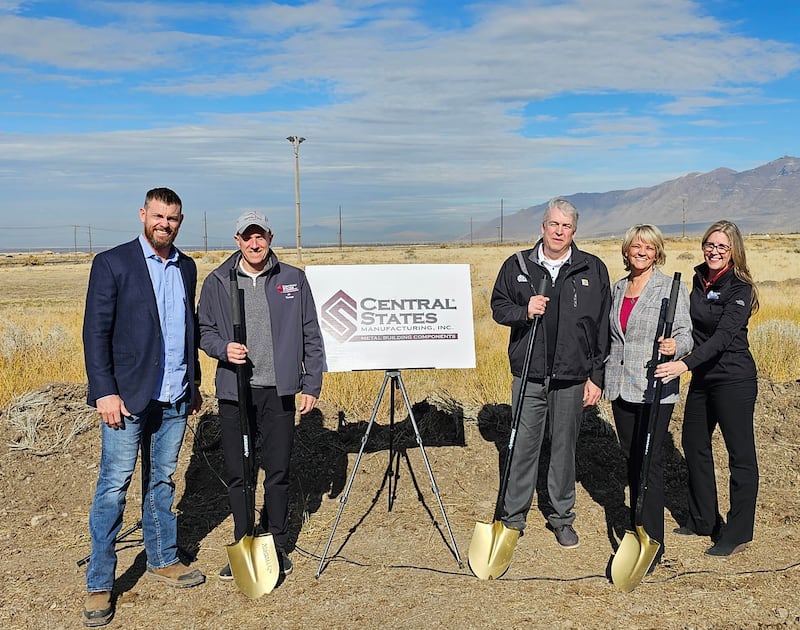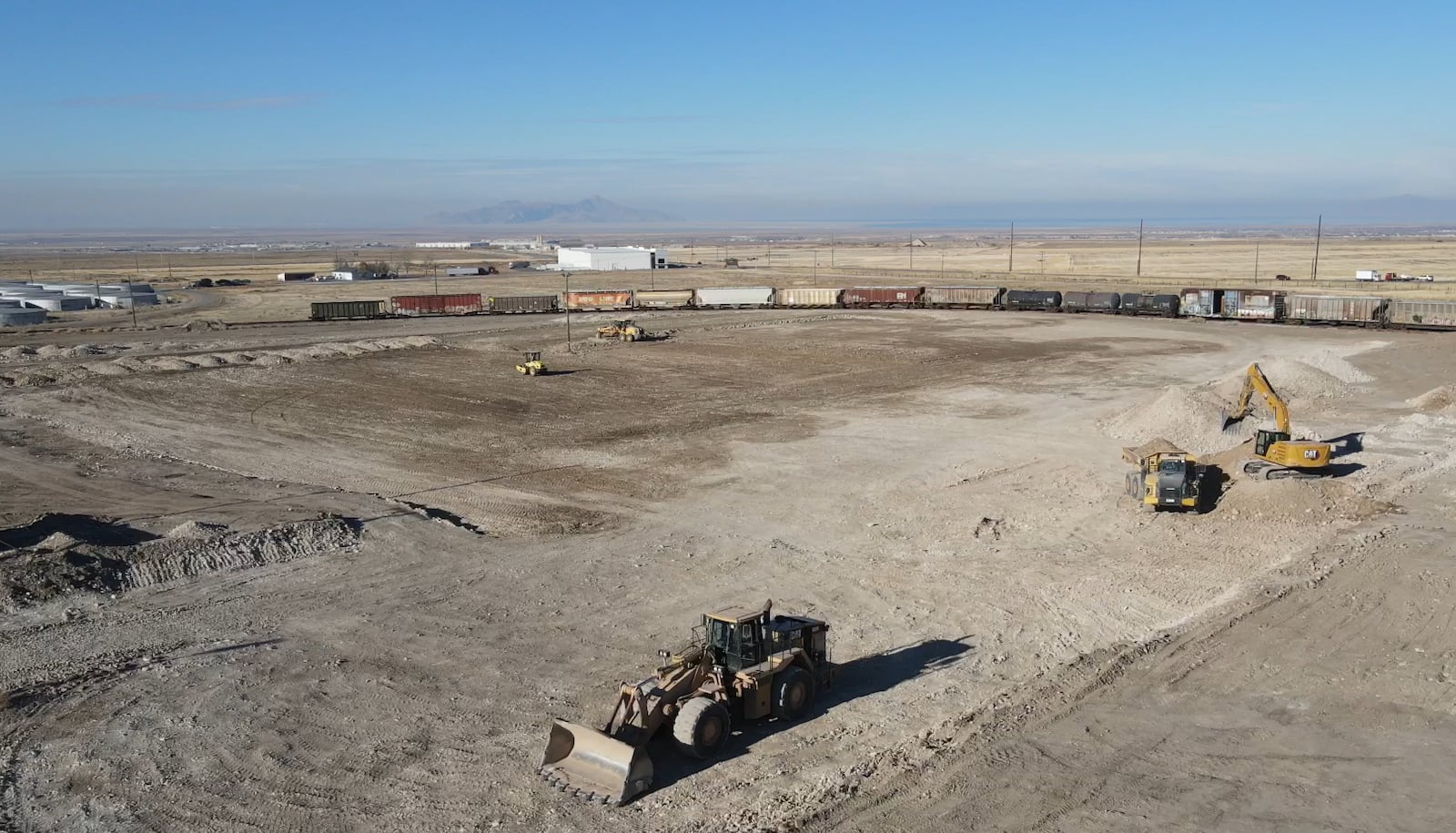This story appears in the March issue of Utah Business. Subscribe.
A community-driven juggernaut just landed in the Tooele Valley. Central States Manufacturing, a nationwide provider of metal building products, recently announced its expansion into Utah’s bustling industrial corridor with the establishment of its 12th regional manufacturing plant—bringing with it a reputation for earnest customer service, remarkable social generosity and dedicated loyalty to its army of employee-owners.
That’s right: Central States Manufacturing is a 100 percent employee-owned business. Specifically, Central States is structured under an employee stock ownership (ESOP) model. Every employee of their business is paid in both salary and shared stock options, and those stocks fuel a number of powerful financial and communal incentives.
Skin in the game
“There’s a different level of caring, of desire, within the facility,” says Tim Ruger, president of Central States Manufacturing. “It drives behaviors. We might say, ‘Last year, we spent $5.2 million on scrap. If we were to cut that in half, that’s $2 million that goes directly into profitability. And because our value as a company is established—meaning your stock value is based on our value—that influences how much your value is. That training, and the ownership that goes with it, makes it different.”
Ruger is emphatic on that point. ESOP operations are not “business as usual” but instead give employees very real skin in the game. Shared profit margins, from the uppermost management to the baseline workforce, weld the company together under a singular ethos.
“We don’t have a mission statement,” Ruger says. “We have a purpose statement. Why do we exist as a company? We exist for the financial well-being of our employee-owners. That’s why we’re here, and we want to have more employee-owners so we can provide that purpose to more people. It drives what we do. It’s not about optimizing bottom-line profit. It’s about growing the company.”
Those values foster a culture that offers major returns for its employees.
“I believe it gives a greater purpose when you come to work,” Ruger says. “As a leadership mentality, I think everybody wakes up in the morning and wants to go to work and do a good job. So I think it provides a purpose—‘I enjoy being there. I’m working better.’ I think that’s great on a practical level.”
Shared success
Ruger is quick to point out that, in addition to enhancing quality of life, the ESOP model offers tangible financial benefits that are hard to ignore.
“You have some flexibility in how you structure an ESOP,” he says. “It’s all contributed based on a percentage of your earnings. And as long as you’ve been here two years, you can start to pull some out. … I’ve got people that come out of high school to work for us, high school degree, and they’re like, ‘I put my three kids through college with zero debt, taking money out of the ESOP.’ How cool is that?”
Ruger has several other success stories to share.
“I think right now we have 42 millionaires that are working within the company, and it’s not just a management thing,” he says. “A few years ago, Forbes did an article about a driver [of ours] that retired. By the time he retired, he had a little over $3 million. A driver retiring with that kind of money isn’t typical. Another guy came out of high school and never did anything but work on a machine. At 42, he retired with multiple millions of dollars. He’s fishing now.”
As for the less fortunate? Central States’ ESOP model creates incentives for its members to look out for each other—and its employee-owners are running with it.
“We’ve got a program called SHINE,” Ruger says. “We’ve had former and current employees put their money into a nonprofit fund. The company matches it, dollar for dollar, and if anybody has a hardship, it helps cover it.” He offers a few examples of tragedies paid for by the SHINE fund, like house fires, insurance premiums and family member funerals.
“People [in the company] have been so blessed that they had the ability and desire to give back,” Ruger continues. “They have such a feeling of community within the company that they said, ‘I want [us] to take care of each other.’”
The ESOP equation
Companies looking to try out the ESOP model should be aware that it’s not a typical restructuring, Ruger says. Public companies need to go private first—and private companies need to consider the long-term costs.
“The biggest thing you need to do is watch for what’s called a repurchase obligation,” he says. “You’ve got to have enough cash so that if anybody retires, you can pay them off, right? That’s the whole commitment.”
While ESOPs avoid federal income taxes on account of qualifying as S Corps, Ruger says that Central States does end up paying more to its employees than it ever would to the IRS. “But how cool is it to put that money into somebody’s pocket instead of sending it to the government?” he says.
However, Ruger makes it clear that those tax tradeoffs are only a small part of the solvency picture. “If you grow too fast or become too debt-laden, it is a problem,” he says. “While you need to grow, as an ESOP—to become really healthy—you don’t need to grow like crazy.”
As such, ESOP companies need to project their strategies and expenses several years into the future. “You’ve got to watch your growth,” Ruger says. “You’ve got to continually model it.”
What does that future look like for Central States Manufacturing in Utah? Ruger is delighted by the “Beehive State” moniker and our state’s community-driven industry. In that sense, Central States and Utah align very closely.
“I think this comes from our culture and the idea of being employee-owned and wanting to give back,” Ruger says. “We feel very blessed as a company. You’ll see us taking part in the community. We’re not a big fan of just writing checks—we want to get out and help fix things in the community. … You’re going to see a lot of that type of engagement with us.”


